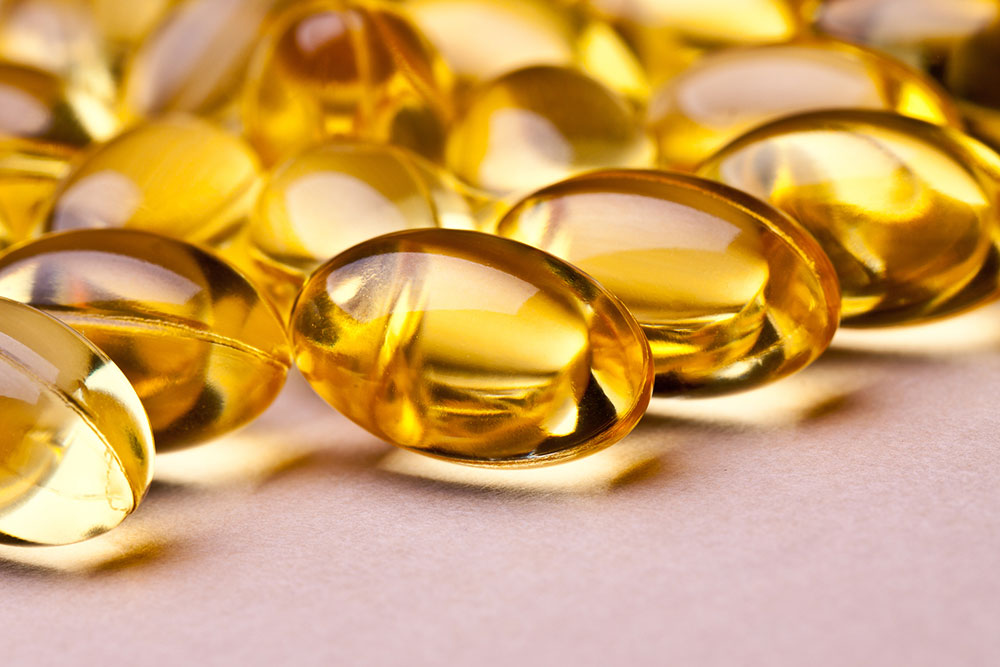An Overview of Essential Vitamins and Their Purpose

The path to a healthy and energetic life is known to all but very few can follow all the “rules” of consuming a balanced diet, regular physical exercise and sleeping properly. If you are worried about feeling a lack of energy throughout the day and feel drowsy even after a good night’s sleep, chances are that you have vitamin deficiency in your body, which can be fulfilled by none other than the vitamins for energy. Ensure that your diet also contains magnesium, folic acid, omega 3 fatty acid, amino acid etc to make it a truly healthy meal.
Vitamin A (Retinol)
As the name suggests, Vitamin A enhances the activity of retina or eye health. Animal liver, fish oil, eggs, milk, orange or yellow vegetables like carrot, papaya, tomato and pumpkin and fruits like apple and citrus are rich in Vitamin A.
It keeps the central nervous system and immune system working properly so that your energy levels are boosted up. Being a powerful antioxidant, it fights radical damage to stop premature aging and keeps you young.
Vitamin B1 (Thiamine)
Legumes like beans and peas, yeast, beef, pork, fish, liver, seeds, eggs, milk, asparagus, oats, nuts, and oranges are rich in Vitamin B1. You can also consume cereals, bread, flour, rice, and pasta to fulfill the deficiency of this Vitamin.
It is one of the most important vitamins for energy as it breaks down carbohydrate for converting into energy. It keeps your blood sugar level normal and supports proper functioning of the major organs of the body including the brain. Thiamine also keeps the cardiovascular health normal so that your body gets proper blood flow to keep you energetic throughout the day.
Vitamin B3 (Niacin)
Fish; especially tuna, chicken, turkey, liver, and avocado are the commonest sources of B3. Mushrooms, peanuts, green peas, and sunflower seeds also contain this vitamin.
Being an antioxidant, its effectiveness does not lie in making one energetic but it supplies energy within the cellular level. It has a detoxifying agent that enhances energy levels while reducing the bad cholesterol level in the heart and keeping the blood sugar levels normal.
Vitamin B6 (Pyridoxine)
This vitamin is mostly available in vitamin B complex supplements, multivitamin tablets or food powders. However, you will get it primarily from organ meats and fish, eggs, seafood, nuts, legumes like peas and beans, seeds, soy and cereals like oats and wheat. Poultry meat, beef, and turkeys are also rich in B6.
B6 breaks down and processes nutrients in meats and other foods and helps in its proper digestion. It enhances mental clarity to make you feel energetic and strengthens the nervous system by boosting physical energy by producing neurotransmitters.
Vitamin B9 (Folic Acid)
Leafy vegetables like spinach, lettuce, turnip, mustard greens, beans, avocado, asparagus, broccoli, squash, celery, carrots, corn, cauliflower, beetroot, nuts, seeds, okra, lentils, peas and citrus fruits like grapes, raspberry, strawberry, papaya, and oranges are rich in B9.
Folic acid helps in removing any tendency of faintness or breathlessness. For pregnant women, folic acid works wonders to increase energy level and reducing drowsiness.
Vitamin B12 (Methylcobalamin)
You can get a sufficient amount of B12 from the ready-to-make breakfast cereals as well as multivitamin supplements. It is not available in plant sources but you will get it from milk, dairy products, eggs, fish, poultry meat etc.
With a steady intake of Vitamin B12, you will not feel fatigued or lethargic and instead feel recharged. It breaks down the carbohydrates and produces energy. Moreover, it also helps in maintaining a healthy digestive system to keep you active.
Vitamin C (Ascorbic Acid)
Oranges, lemons, papaya, bell peppers, red peppers, strawberries, broccoli, kale, cauliflowers, Brussels sprouts, tomato, winter squash, white and sweet potatoes and leafy vegetables like cabbage, spinach, and turnip greens are rich sources of Vitamin C.
It helps in keeping the immune system working properly so the body can take care of itself better . Being an antioxidant, it fights cancer and also lowers the bad cholesterol levels. Cardiovascular health is enriched with proper blood flow, which helps in a healthy life with an increased energy level.
Vitamin D (Calciferol)
Apart from egg yolks, cheese, and other dairy products, beef liver, soy milk, cereals, and orange juice, Vitamin D is found in sufficient amounts in fatty fishes like salmon, mackerel, tuna, and cod. It is dubbed as the Sunshine Vitamin.
Vitamin E (Tocopherol)
This is among the vitamins for energy that have anti-aging properties. By fighting the decay of free radicals it helps in boosting energy levels. You can get it from vegetable oils like soybean, sunflower and wheat germ, nuts like hazelnuts, peanuts and almonds, seeds, breakfast cereals, spreads, leafy vegetables like broccoli and spinach.
Vitamin K2 (Phylloquinone)
Available in leafy vegetables like collard greens, turnip greens, mustard greens, lettuce, spinach and kale as well as cabbage, broccoli, Bbrussels sprouts, this vitamin revitalizes your body. Green tea, which has this antioxidant property is known for making you feel energetic. Moreover, K2 also maintains your bone health and keeps you strong.
When you are trying to balance your life between t extremely hectic schedules and an energetic lifestyle, health always takes a backseat and to keep the energy bars soaring, you need to take vitamins that give energy.